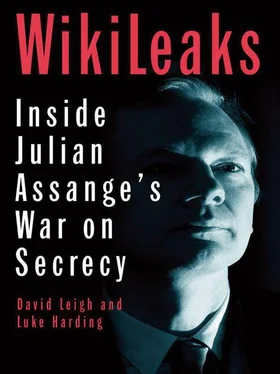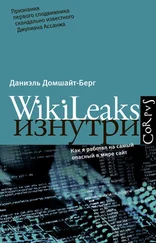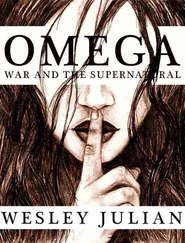Harding, Luke - WikiLeaks - Inside Julian Assange's War on Secrecy
Здесь есть возможность читать онлайн «Harding, Luke - WikiLeaks - Inside Julian Assange's War on Secrecy» весь текст электронной книги совершенно бесплатно (целиком полную версию без сокращений). В некоторых случаях можно слушать аудио, скачать через торрент в формате fb2 и присутствует краткое содержание. Жанр: Старинная литература, на английском языке. Описание произведения, (предисловие) а так же отзывы посетителей доступны на портале библиотеки ЛибКат.
- Название:WikiLeaks: Inside Julian Assange's War on Secrecy
- Автор:
- Жанр:
- Год:неизвестен
- ISBN:нет данных
- Рейтинг книги:3 / 5. Голосов: 1
-
Избранное:Добавить в избранное
- Отзывы:
-
Ваша оценка:
- 60
- 1
- 2
- 3
- 4
- 5
WikiLeaks: Inside Julian Assange's War on Secrecy: краткое содержание, описание и аннотация
Предлагаем к чтению аннотацию, описание, краткое содержание или предисловие (зависит от того, что написал сам автор книги «WikiLeaks: Inside Julian Assange's War on Secrecy»). Если вы не нашли необходимую информацию о книге — напишите в комментариях, мы постараемся отыскать её.
WikiLeaks: Inside Julian Assange's War on Secrecy — читать онлайн бесплатно полную книгу (весь текст) целиком
Ниже представлен текст книги, разбитый по страницам. Система сохранения места последней прочитанной страницы, позволяет с удобством читать онлайн бесплатно книгу «WikiLeaks: Inside Julian Assange's War on Secrecy», без необходимости каждый раз заново искать на чём Вы остановились. Поставьте закладку, и сможете в любой момент перейти на страницу, на которой закончили чтение.
Интервал:
Закладка:
How much did the US administration know of this planned challenge to their secrets? The journalists assumed the CIA had followed every twist and turn of the project. The US army had certainly been aware that thousands of diplomatic cables had gone astray since the summer, when Private Bradley Manning had been specifically indicted for purloining them. But the Obama administration appeared remarkably unaware of just which cables WikiLeaks and its media partners now had in their possession.
In the week before publication, the state department warned many of its allies about the cables’ embarrassing contents. But they appeared not to know that the leaked cables ceased at the end of February, believing some to be more recent. Rumours circulated that Washington had been unimpressed with David Cameron and Britain’s new coalition government, which took power in May. The US ambassador in London, Louis B Susman, allegedly said as much in a post-election cable. The Americans, it was gathered, had now sheepishly briefed Downing Street about its contents. They were under the impression the leaked cables went up to June 2010, the month of Manning’s arrest.
The Guardian didn’t have that Cameron cable. As a result Cameron survived the WikiLeaks drama relatively unscathed. “We were amazed about how little the US knew about what we were doing,” Katz says. ‘They clearly had no idea which data set we had. They massively over-briefed about what was in the cables.”
The New York Times had decided to forewarn the state department which cables it was intending to use. The Guardian – which worked in Britain under a peculiarly oppressive legal regime – was not going to follow the Americans quite that far. The paper was willing to listen, but was already doing all it could, without official prompting, to protect sensitive human contacts from reprisal, and not to publish irresponsibly.
A few days before the cables’ release, two senior figures from the US embassy in Grosvenor Square called in to the Guardian ’s London offices for a chat. This discussion led to a surreal transatlantic telephone call on Friday 26 November – two days before D-Day. Rusbridger had agreed to ring Washington. He made the conference call from the circular table in his office. On the line in Washington was PJ Crowley, the US assistant secretary of state for public affairs. The conversation began:
“OK, here’s PJ Crowley. I just want you to know in this phone call we’ve got secretary of state Clinton’s private secretary, we have representatives of the DoD, the intelligence communities, and the National Security Council.”
All Rusbridger could offer in reply was, “We have our managing editor here …”
Crowley then set out how the cable scandal looked from the lofty heights of US power: “Obviously, from our perspective these are stolen documents. They reveal sensitive military secrets and addresses that expose people to security risks.”
Crowley made his pitch. He said the US government was “willing to help” the Guardian if the newspaper was prepared to “share the documents” it had – in other words, tip off the state department which cables it intended to publish. Rusbridger was non-committal. He said: “I don’t think we are going to agree on that now, so why don’t we return later to that.”
Crowley said some special forces operations and dealings with some countries were sensitive. He then asked for a pause. He came back a couple of minutes later: “Mr Rusbridger, we don’t feel this conversation is working for us because at the moment we are just giving a lot of stories, and we are not getting a lot in return.”
Clinton’s private secretary chipped in. She said: “I’ve got a very direct question for you, Mr Rusbridger. You journalists like asking direct questions and I know you expect direct answers. So I’m going to ask you a direct question. Are you going to give us the numbers of the cables or not?”
“No, we’re not.”
“Thank you very much.”
Rusbridger did decide to tell the Americans the Guardian ’s broad publication schedule. Day one, he said was to feature Iran, with North Korea on day two and Pakistan on day three. Then the conversation was over.
In Germany, the editor-in-chief of Der Spiegel had taken a call from the US ambassador. He told Georg Mascolo that there was huge concern at the “highest, highest levels” about the security of sources: “Lives could be in jeopardy.” Mascolo replied that Der Spiegel had done everything it could to protect sources who might be in danger. He invited the state department to share with him their areas of concern.
The New York Times had been holding its own sometimes tense negotiations with US government officials. The paper’s lawyers were confident that it could report on the secret documents without violating American law. But Bill Keller felt a large moral and ethical responsibility to use the material responsibly: “While we assumed we had little or no ability to influence what WikiLeaks did, let alone what would happen once this material was loosed in the echo chamber of the blogosphere, that did not free us from the obligation to exercise care in our own journalism. From the beginning we determined that in our articles and in any documents we published from the secret archive we would excise material that could put lives at risk,” he wrote later.
The New York Times ’s policy was to err on the side of caution. With the Afghan and Iraq war logs, the paper redacted names of all sources who had spoken to US soldiers and diplomats, and edited out details that might have revealed continuing intelligence-gathering operations or military tactics. But because of the range of the material and the hypersensitivities of diplomacy, the embassy cables were bound to be more explosive than the war logs, Keller considered.
Dean Baquet, the New York Times ’s Washington bureau chief, gave the White House an early warning on 19 November. Five days later, the day before Thanksgiving, Baquet and three colleagues were invited to a windowless room in the state department, where they encountered an unsmiling crowd: representatives of the White House, the state department, the director of national intelligence, the CIA, the Defence Intelligence Agency, the FBI and the Pentagon, gathered around a conference table. Others, who never identified themselves, lined the walls. A solitary note-taker tapped away on a computer.
The meeting was off the record, but it is fair to say the mood was tense. Scott Shane, one of the reporters who participated in the meeting, described “an undertone of suppressed outrage and frustration”. Subsequent meetings and daily conference calls were less prickly and more businesslike, Keller says. The US administration had three areas generally of concern. It wanted to protect individuals who had spoken candidly to US diplomats in oppressive countries – something the New York Times was happy to do. It also wanted to remove references to secret American programmes relating to intelligence. Lastly, it did not want the paper to reveal candid remarks by heads of state and other top foreign officials, and feared publication would strain relations with those countries. “We were mostly unpersuaded,” Keller recalls.
This was, of course, hardly the first time the New York Times had published secrets that discomfited the US government. Before the year of WikiLeaks, nothing the paper had done on Keller’s watch had caused quite the agitation of two articles the paper published about tactics employed by the Bush administration after the attacks of 11 September 2001. One article, which was published in 2005 and won a Pulitzer prize, revealed that the National Security Agency was eavesdropping on domestic phone and email conversations without the legal courtesy of a warrant. The other, published in 2006, described a vast treasury department programme to screen international banking records.
Читать дальшеИнтервал:
Закладка:
Похожие книги на «WikiLeaks: Inside Julian Assange's War on Secrecy»
Представляем Вашему вниманию похожие книги на «WikiLeaks: Inside Julian Assange's War on Secrecy» списком для выбора. Мы отобрали схожую по названию и смыслу литературу в надежде предоставить читателям больше вариантов отыскать новые, интересные, ещё непрочитанные произведения.
Обсуждение, отзывы о книге «WikiLeaks: Inside Julian Assange's War on Secrecy» и просто собственные мнения читателей. Оставьте ваши комментарии, напишите, что Вы думаете о произведении, его смысле или главных героях. Укажите что конкретно понравилось, а что нет, и почему Вы так считаете.












